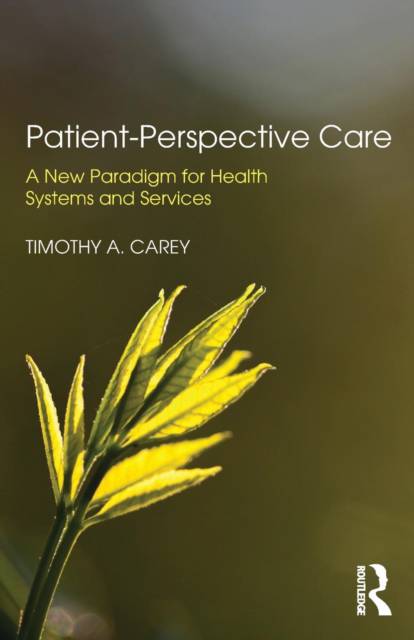
- Retrait gratuit dans votre magasin Club
- 7.000.000 titres dans notre catalogue
- Payer en toute sécurité
- Toujours un magasin près de chez vous
- Retrait gratuit dans votre magasin Club
- 7.000.0000 titres dans notre catalogue
- Payer en toute sécurité
- Toujours un magasin près de chez vous
Patient-Perspective Care
A New Paradigm for Health Systems and Services
Timothy A CareyDescription
Inappropriate health care is an escalating and expensive problem. It affects high income, middle income, and low income countries and wastes billions of dollars annually as well as harming individuals and communities. Inappropriate care refers to both the overuse and underuse of tests and treatments and, ironically, can occur concurrently within the same health system. Even though patient-centred care is still the prevailing ethos, specifying where patients should be situated geographically has not required health professionals to consider the preferences, values, and priorities of patients when making treatment decisions.
Patient-perspective care demands that the decisions health professionals make are in the service of patient's goals. Health care, ultimately, is helping individuals to live the lives they would wish for themselves. In order to meet this imperative, health professionals must work towards understanding what their patients would like to achieve through their engagement with health services. This book details the extent and scope of inappropriate care and how we have arrived in this position. The necessity for patient-perspective care is outlined and provides a theoretical framework that explains why patient-perspective care is so critical. The implications of this theory are then explored and specific strategies for moving towards a patient-perspective approach are discussed.
This book is entirely original and describes a novel, fresh approach to delivering health services. Many long-standing and expensive problems such as missed appointments will disappear and patients will be more satisfied with the treatments they receive. Health services generally will be more efficient and effective leading to more sustainable and affordable health care.
Spécifications
Parties prenantes
- Auteur(s) :
- Editeur:
Contenu
- Nombre de pages :
- 136
- Langue:
- Anglais
Caractéristiques
- EAN:
- 9780815378785
- Date de parution :
- 01-12-17
- Format:
- Livre broché
- Format numérique:
- Trade paperback (VS)
- Dimensions :
- 129 mm x 198 mm
- Poids :
- 154 g

Les avis
Nous publions uniquement les avis qui respectent les conditions requises. Consultez nos conditions pour les avis.






